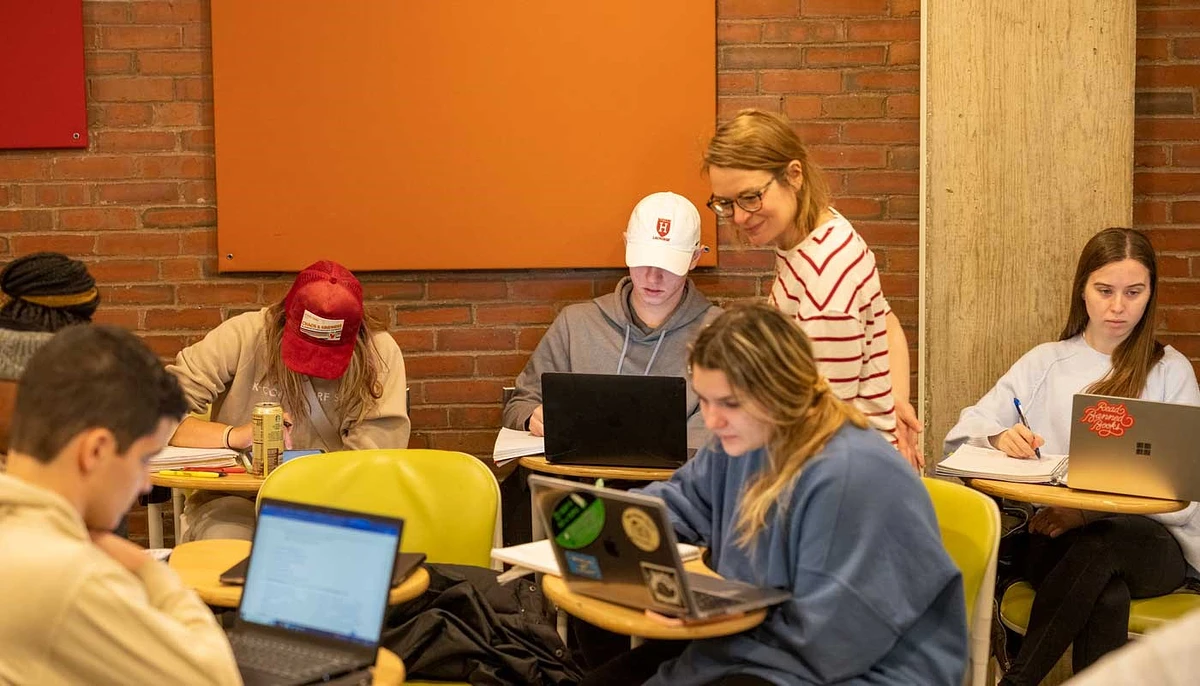First-Semester Slump? A Parent's Guide to Support and Success
By Julie Nash, PhD - Vice Provost for Academic Affairs
Your student has now completed a semester at UML, and while many of you are celebrating a successful term, some of you may have a student who struggled this semester, who didn't do as well as they or you may have hoped. If you're worried about your student's grades, you're not alone. The transition to college can be tough, and many students experience a dip in academic performance during their first semester. But before you panic, take a deep breath and explore some tips for navigating this common challenge so you can best support your student.
- Remember, that first semester in college can be hard. Students arrive on campus with varying levels of maturity, study skills, and emotional needs. I see that level off over time but there can be a wide variation early on. Don't compare your student to others. They're all on their own timetable. Remember when your child was in kindergarten, and everyone was focused on early readers as if this was some guarantee of future genius. Focus on your student's individual journey and celebrate their progress, no matter the pace.
- Don't despair about a low GPA. Students can delete up to 15 credits of C- of lower over the course of their undergraduate career. While they will need to make up the credits by taking other courses, deleting low grades will boost their GPA and mitigate the impact of a rough first semester. This is a conversation to have with an advisor and deleting a course is not always the right decision. For example, a student may want to keep a course with a "c-" or "D" if it isn't a prerequisite for another course. While not great on the transcript, those three credits will count toward graduation. Every year, I get requests from students who want to "undelete" a grade because they would rather graduate than have to take that one final course. (We really can't do that). Of course, any grades of "F" should be deleted right away. They'll never come in handy later.
- If your student's GPA is below 2.0, they will be placed on "Academic Warning." All first-year and first-time transfer students on warning they will be contacted by their professional advisor from the Centers for Learning, Advising and Student Success (CLASS). Professional advisors from the CLASS team can assist them with outlining academic success strategies for the upcoming semester and help connect them with other campus resources that can further support their success.
- Consider that your student may be in the wrong major. They should be getting an education that suits their interests and talents. People change a lot at this age, and students may come to college with a "lifelong dream" to be an entrepreneur or nurse or whatever, and then realize that's not really what they want to do. It's hard for them to give up that idea of themselves. When you're 19, a "lifelong dream" is just a moment in time, but it feels big to them. (You may have to give up your own lifelong dream for your child to enter a certain profession as well). Most of the careers our students are going to have don't even exist yet, and I believe there is too much emphasis placed on what students are majoring in, especially in the first year.
- If your student is really struggling emotionally, don't hesitate to seek help from the campus counseling center or, if you have the resources, a private therapist. Health and wellness come first. Always.
- Remind your student that they're not alone and the resources for them to succeed are at their fingertips and are free: tutoring, advising, library supports, and more. Ask for help from faculty, advisors, peer mentors. If you don't get the help you need, ask someone else. We want all of our students to succeed!
I'm going to wrap up with a true story of a student I was emailing with yesterday. He struggled with poor grades his first few semesters at UML. He has bounced back, is graduating this month with a solid GPA, and has a great job waiting for him in January. I congratulated him on turning it around and here is what he wrote to me: "It's funny, I was speaking with my Mom the other day and even though this situation started off as badly as it could have, I have no disappointment with how things turned out. I believe I came out of this situation a much better and mature person, getting opportunities I don't think I would have had if things had gone 'as planned' early on. I've tried to take everything the University has offered to me, from the classes, labs, and co-op experiences, and the friends that came along with those are something I'll carry with myself for the rest of my life."
Remember, a temporary setback doesn't define your student's future. With your support, guidance, and access to the right resources, they can learn from their experiences, adjust their approach, and find their way.
Skip past news feed


